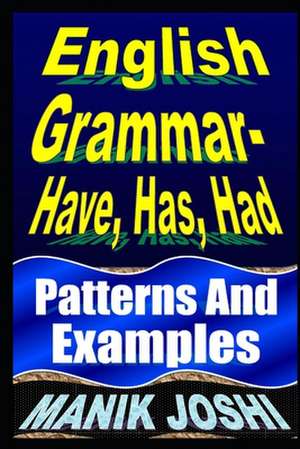English Grammar- Have, Has, Had
Autor MR Manik Joshien Limba Engleză Paperback
Preț: 53.98 lei
Nou
Puncte Express: 81
Preț estimativ în valută:
10.33€ • 10.70$ • 8.62£
10.33€ • 10.70$ • 8.62£
Carte disponibilă
Livrare economică 28 februarie-14 martie
Preluare comenzi: 021 569.72.76
Specificații
ISBN-13: 9781497597891
ISBN-10: 1497597897
Pagini: 100
Dimensiuni: 152 x 229 x 5 mm
Greutate: 0.15 kg
Editura: CreateSpace Independent Publishing Platform
ISBN-10: 1497597897
Pagini: 100
Dimensiuni: 152 x 229 x 5 mm
Greutate: 0.15 kg
Editura: CreateSpace Independent Publishing Platform
